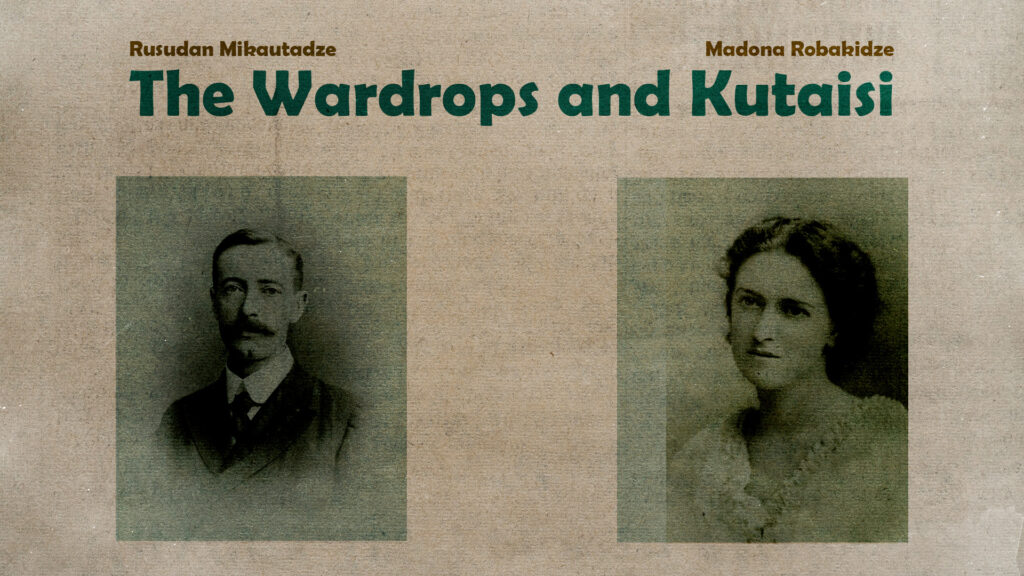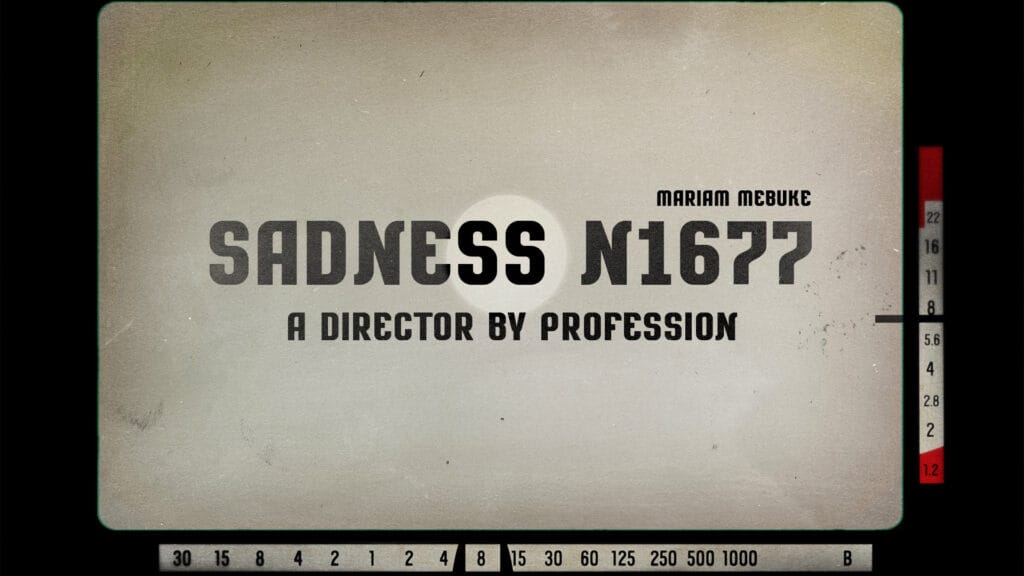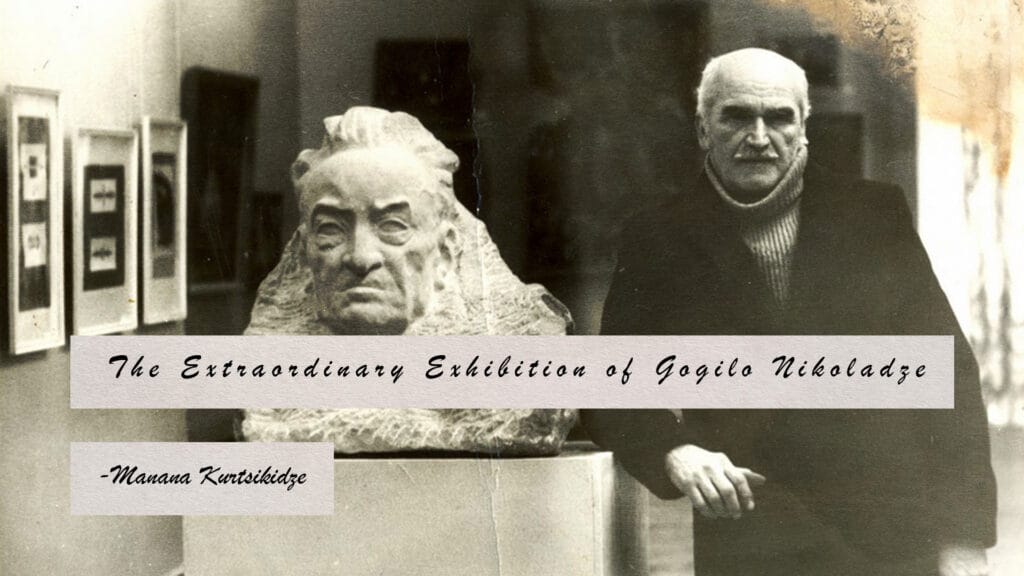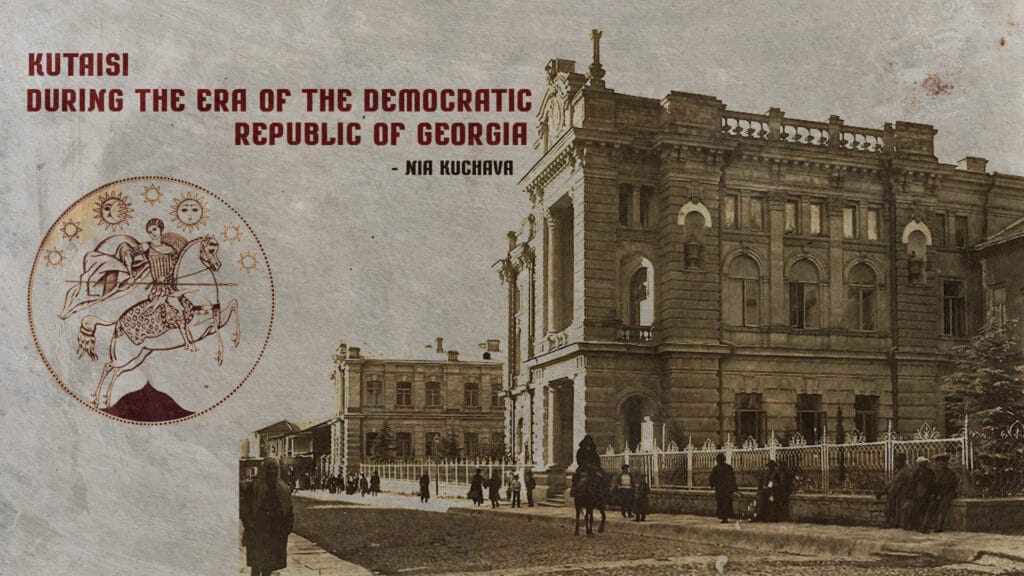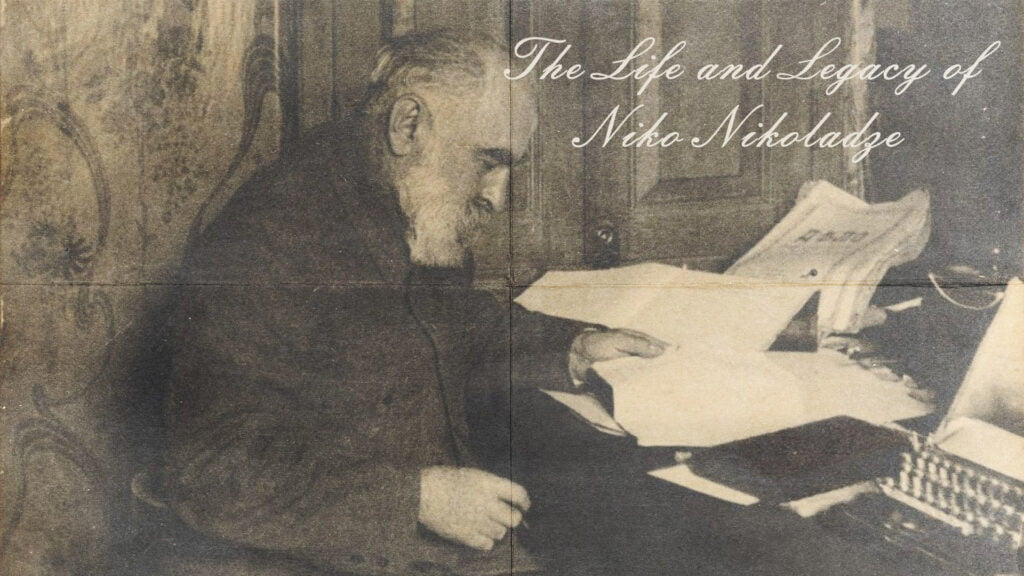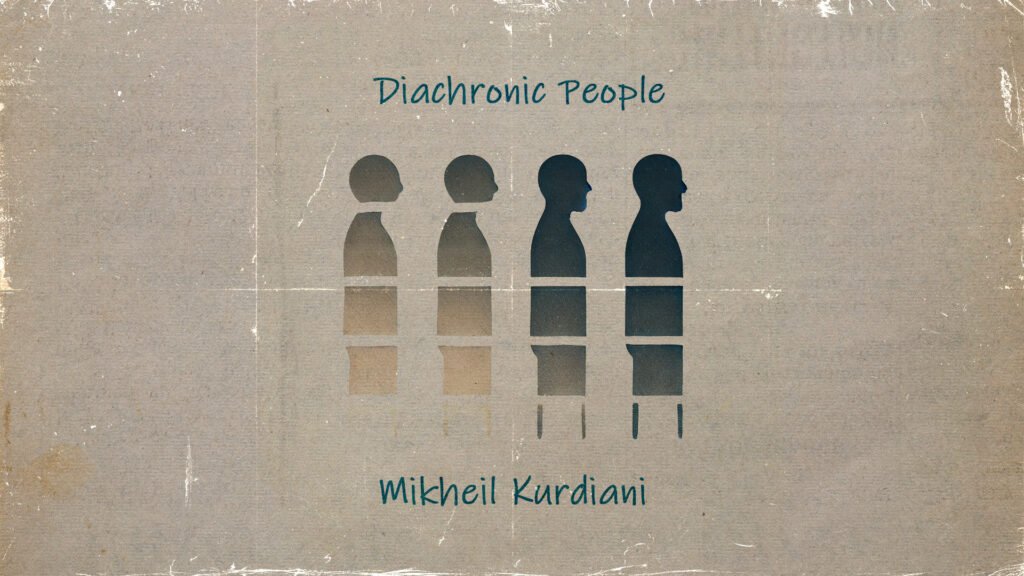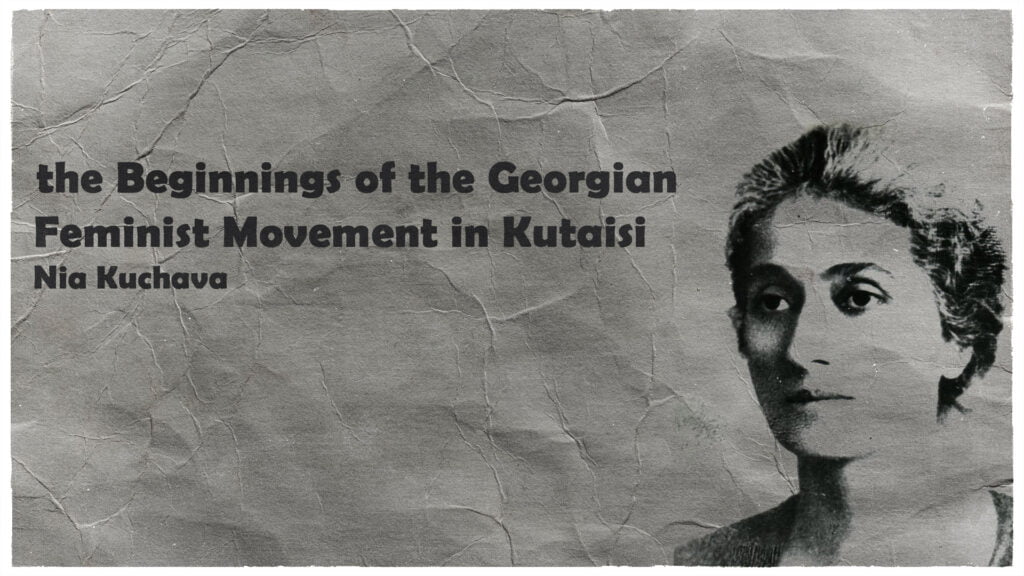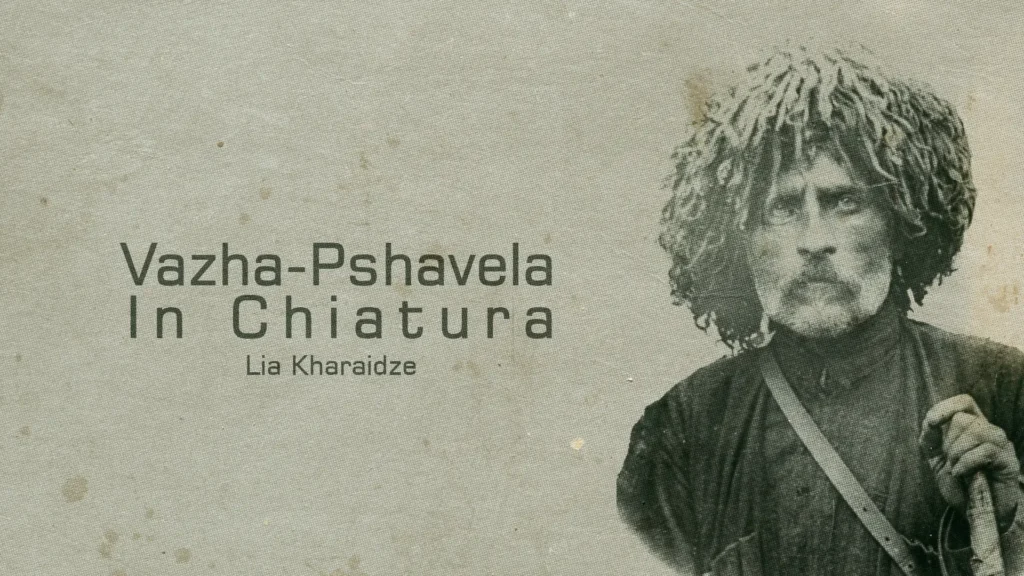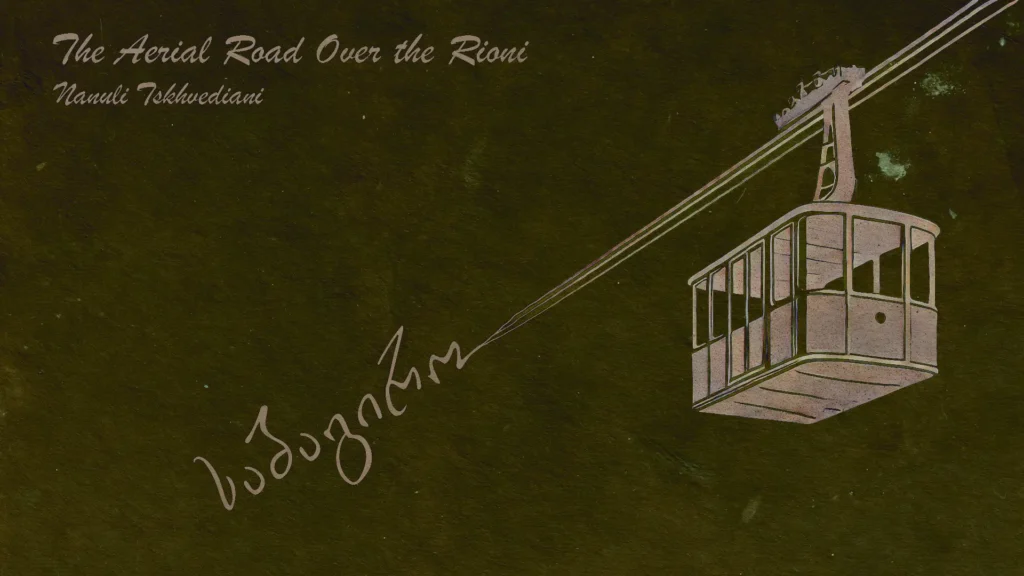Kultura! – Article Archive
The Wardrops and Kutaisi
Thomas Wardrop and his wife Marjory Cameron Scott were blessed with three children: Oliver, Marjory, and Thomas, hailing from a distinguished Scottish family. Oliver Wardrop first encountered Shota Rustaveli on February 19, 1887, during a pilgrimage to Palestine, where he observed Rustaveli’s fresco in the Holy Cross Monastery. This experience ignited his and his family’s lifelong fascination with Rustaveli and his poetry. Oliver served as a representative of the British Kingdom in the South Caucasus and Georgia. He dedicated a book to Georgia titled “The Georgian Kingdom: Impressions from a Journey to the Land of Women, Wine, and Songs.” In it, Oliver described Kutaisi, writing, “Kutaisi is a beautiful city with 25,000 inhabitants, nearly all Georgians.
Sadness N1677: A Director by Profession
“A character lost in the chaos, trying to turn life into one big movie.” You probably won’t recognize this phrase—it doesn’t belong to a famous director, writer, or poet. And this article isn’t about French cinema or the aesthetics of Tarkovsky, Kubrick, or Parajanov. Yet, one thing is clear: there’s a poetic quality to his films and a search for the cinematic within everyday life. We are talking about a young, twenty-year-old filmmaker from Rezo Gabriadze’s Imereti, a place dear to our hearts. This is Saba Bodokia, a man in love with cinema, slowly proving that the dream of creating a flying machine isn’t so far-fetched when fueled by imagination and a desire to soar.
The Extraordinary Exhibition of Gogilo Nikoladze
An extraordinary exhibition begins. Sapichkhia – David Kldiashvili, the Boulevard – the Ishkhneli sisters, the Theater Yard of Meskhiashvili – Lado Meskhiashvili and Kote Marjanishvili, the House of Writers – Lado Asatiani, “Zastava” – Vasily Kikvidze. The Pantheon of Outstanding Figures at Mtsvanekvavila – one, two, three… Do you remember the “extraordinary exhibition”… of the one who “brought half, if not the whole, city to life in stone,” Eristavi at the Kutaisi Cemetery – at his own personal exhibition? This is not just the “tragic fate” of one person but of all the sculptors in a small town. But in this case, Aguli has one prototype for whom the whole city is indeed an extraordinary exhibition. Gogilo (Giorgi) Nikoladze himself,…
Kutaisi During the Era of the Democratic Republic of Georgia
When exploring the development of Georgian political thought and cultural identity, it’s fascinating to observe how individuals often establish profound connections with their historical era and the collective struggles of their time. This self-reflection allows one to align with an imagined unity of people who share similar challenges and concerns. Faced with common difficulties, this collective seeks solutions, searching for answers to their own questions. Once an individual forms a mental connection to this newly conceived collective identity, they begin a process of continuous re-evaluation of heritage, history, and ideas.
The Life and Legacy of Niko Nikoladze – Georgia’s Visionary Leader
Author: Giorgi Pantsulaia Niko Nikoladze, a great Georgian public figure, thinker, and publicist, is celebrated […]
ARS POETICA
Author: Mariam Mebuke “ARS POETICA” “Here, memory hears the rustle of wings And dreams darken […]
Diachronic People
By Mikheil Kurdiani The moments preceding our speech belong to the past, while what occurs […]
Women’s Club: An Analysis of the Beginnings of the Georgian Feminist Movement in Kutaisi
Author: Nia Kuchava The first “Gviriloba” festival in Kutaisi, which derives its name from the […]
Vazha Pshavela in Chiatura
The last century left us with many interesting traditions, but one of the finest must be the gatherings of writers with their readers and the presentation of their creations. Old periodicals and the memoirs of contemporaries have preserved fascinating details of the great Georgian writer Vazha Pshavela’s trip to Western Georgia in 1913.
The Aerial Road Over the Rioni
The story began on May 29, 1961. A large crowd from Kutaisi gathered on the left bank of the Rioni River, in Alexander Tsulukidze Square, adjacent to a newly constructed platform. They all watched a stretched cable, with its other end leading to a second station built in the Park of Culture and Leisure. Soon, a significant moment in the city’s recent history would unfold: two cable cars, filled with people, would move from the stations towards each other, floating above the wide channel of the Rioni River.
